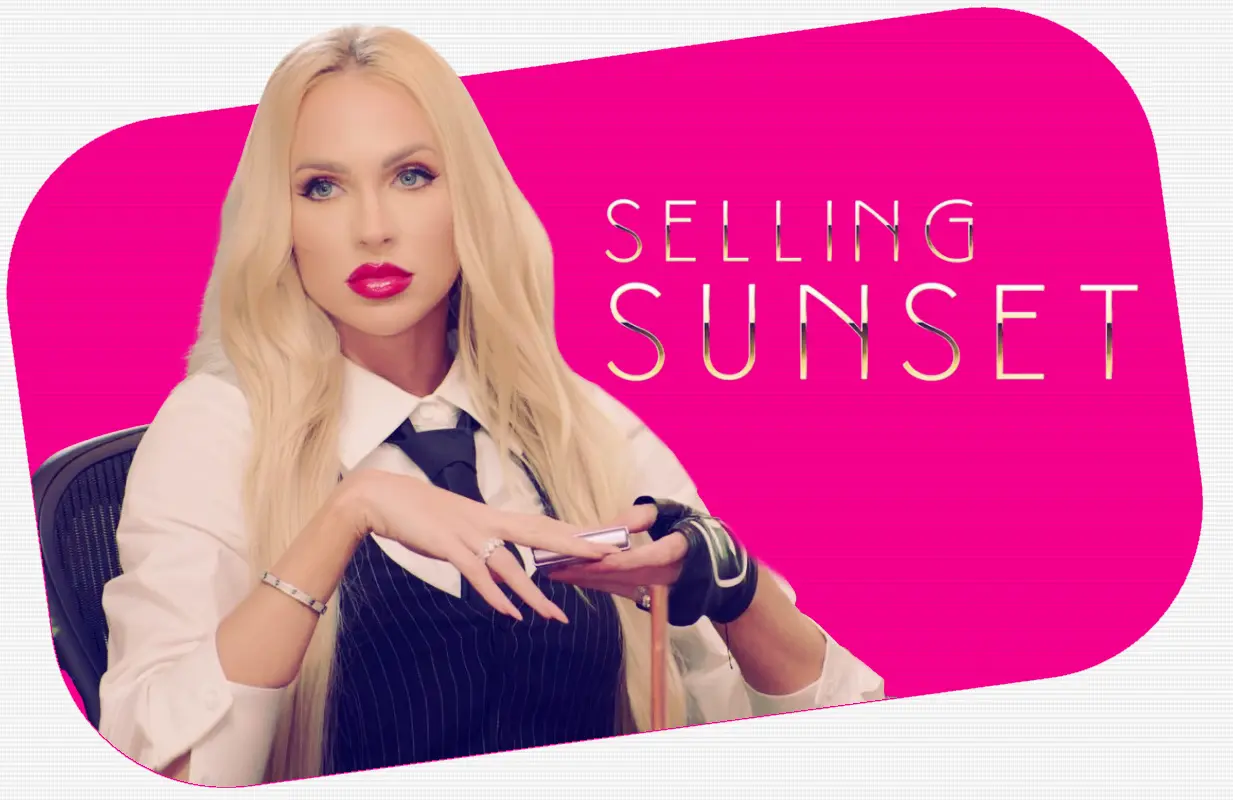Selling Sunset's Christine Quinn Owned Her Villain Edit — Until It Owned Her
-
 Christine Quinn (Photo: Netflix; Primetimer graphic)
Christine Quinn (Photo: Netflix; Primetimer graphic)If there's one thing the world can agree on, it's that reality television left cinéma vérité behind long ago. As the fourth wall continues to dissolve and more celebrities speak out about their experiences on camera, fans have come around to the idea that there's a certain degree of manipulation going on, regardless of the type of show. It's become common to discuss selective or purposely misleading editing practices, including the "villain edit," a concept that reflects the public's growing awareness that many people were involved in shaping the "reality" playing out on screen.
As viewers become more conscious of behind-the-scenes machinations, reality TV personalities must go even further to maintain their place as antagonists, which, as Spencer and Heidi Pratt proved in the mid-2000s, is a lucrative gig. Being awful to other cast members is no longer enough, as anything can be left on the cutting room floor; stars must now be mindful of their villain edit and take steps to reinforce it, whenever and however possible.
No one has navigated our current, hyper-self aware era better than Selling Sunset's Christine Quinn. Throughout her five seasons on the Netflix series — created by none other than The Hills mastermind Adam DiVello — Christine was open about being hired as a villain, and she eagerly embraced the role, resolving to "give the world a show" with her scathing insults and ridiculous antics. She wasted no time getting the ball rolling: In the pilot, Christine established herself in opposition to Chrishell Stause, writing off the new agent as a "kiss-ass" for bringing dog toys into the office on her first day and offering an unsparing assessment of Chrishell's "Ann Taylor, Driving Miss Daisy dress."
Clearly inspired by the rich history of people who are "not here to make friends," Christine pitched herself as the one woman in the office who would be "honest" about her feelings, no matter how hurtful they were (which was most of the time). In the first few seasons, she fulfilled that promise by holding nothing back in group settings or one-on-one conversations. She accused Chrishell of being "two-faced" for not owning up to seemingly innocent office gossip, leading to a poolside blow-up in the Season 1 finale, and inserted herself into drama that didn't concern her by playing devil's advocate when Chrishell's marriage to Justin Hartley came to an abrupt end.
Christine's sniping continued behind her co-stars' backs, and her talking head admissions became the stuff of legend. "Every day I spend my life with these b*tches in the office. I mean, that is the charity event," she infamously said of Chrishell's fundraiser. Christine was similarly critical of Heather El Moussa — who went by Heather Rae Young before marrying HGTV's Tarek El Moussa in Season 5 — revealing she doesn't "like Heather as a person," largely because of the "lack of wheels turning up there." (Christine also took issue with "the way she looks, the way she dresses, [and] the way she speaks.")
But Christine wasn't content to engage solely in verbal warfare. Once her name was on everyone in the Oppenheim Group's lips, she leaned into her designer Barbie look, toddling around active construction sites in six-inch heels and arriving at the office in neon matching sets. While ill-suited to the activities at hand, Christine's outrageous outfits became an essential part of her identity as Selling Sunset's iconoclast. Her fashion choices in later seasons only reinforced that image: Lest anyone forget her role on the show, she wore a black wedding dress when it came time to marry entrepreneur Christian Richard in the Season 3 finale. "Everyone does a white wedding dress," she told the camera. "If you can pull off a black wedding dress, sh*t, you can pull off anything."
And yet, for all her effort to take ownership over her narrative, Christine serves as something of a cautionary tale. She was so successful at turning herself into a cartoon villain that she left little room for anything else, and in later seasons, her schtick wore thin. By the time Christine was fired for allegedly bribing a client to stop working with her new rival, Emma Hernan (a storyline she said was "fake"), the overwhelming feeling among the agents, and viewers, was one of relief. What a disappointing end for one of the most charismatic antagonists the genre has seen in some time — and certainly, the most memorable to have gotten her start on streaming.
With so many reality TV storylines now happening off camera, including Bravo's recent #Scandoval, questions about what makes the final cut and how that footage is presented to viewers are more relevant than ever. But let Christine Quinn be a lesson to up-and-coming reality TV villains: Playing the game is one thing, but when you focus on image to the exclusion of all else, you run the risk of losing your platform entirely.
Claire Spellberg Lustig is the Senior Editor at Primetimer and a scholar of The View. Follow her on Twitter at @c_spellberg.
TOPICS: Christine Quinn, Netflix, Selling Sunset, Chrishell Stause, Reality TV
- Selling Sunset star Christine Quinn called out by Savannah Chrisley following Erika Kirk comments
- Missing Selling Sunset? Let Buying London Be Your Next Luxurious Escape
- It's Time to Declare a Winner in Primetimer's Ultimate Reality TV Villains Bracket
- Liars, Cheats, and Bigots Face Off in Round 3 of Primetimer's Ultimate Reality TV Villains Bracket